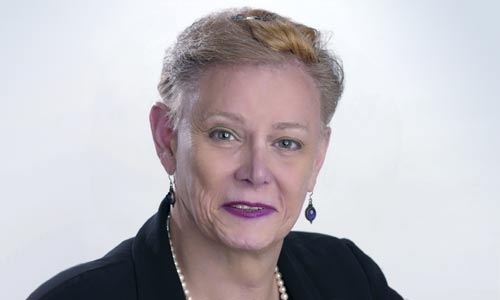Denison University has announced that Deirdre N. McCloskey will serve as the keynote speaker at the college’s 174th Commencement ceremony on Saturday, May 16, 2015. McCloskey is a well-known economist, historian and rhetorician. She has written 17 books, edited seven others, and has published some 400 scholarly pieces on topics ranging from technical economics and statistics to transgender advocacy and the ethics of the virtues. McCloskey holds an appointment as Distinguished Professor of Economics and of History, as well as a professor of English and communication, at the University of Illinois at Chicago. In addition, she has taught widely in Europe, at the University of Chicago — and at Denison.
At the Commencement ceremony, McCloskey will be conferred with the degree, Doctor of Humane Letters, honoris causa.
“It is a remarkable honor to have Deirdre as our Commencement speaker,” said Denison President Adam Weinberg. “In so many ways, Professor McCloskey exemplifies the power of the liberal arts to frame questions and connect ideas in ways that advance knowledge and create pathways to a better world.”
“Deirdre is a rigorous, generous and unfailingly creative scholar whose work on postmodernism, rhetoric, history and ethics has enriched our thinking in multiple dimensions,” said Ted Burczak, professor of economics at Denison. “Her devotion to boundary crossing is an inspiration to economists, humanistic social scientists and all professors of the liberal arts.”
McCloskey is known as a “conservative” economist, of the Chicago school style. Yet McCloskey describes herself as “a literary, quantitative, postmodern, free-market, progressive Episcopalian, Midwestern woman from Boston who was once a man. Not ‘conservative’! I’m a Christian libertarian.”
McCloskey’s latest book, “Bourgeois Dignity: Why Economics Can’t Explain the Modern World,” argues that an ideological change, rather than saving or exploitation is what made us rich. It is the second in a series of three on the Bourgeois Era. The first was “The Bourgeois Virtues: Ethics for an Age of Commerce,” which asks if a participant in a capitalist economy can still have an ethical life. The third volume, “Bourgeois Equality: How Betterment Became Ethical, 1600-1848, and Then Suspect,” will be published in 2016 by the University of Chicago Press. With Stephen Ziliak she wrote, “The Cult of Statistical Significance,” which criticizes the proliferation of tests of “significance,” and was the basis of a 2011 Supreme Court decision.
